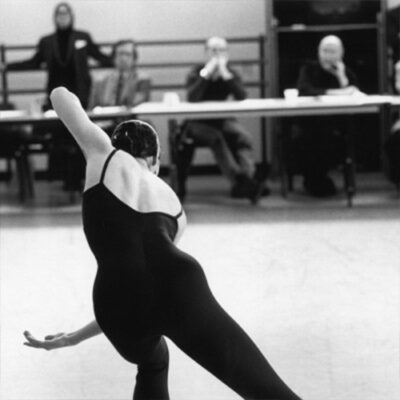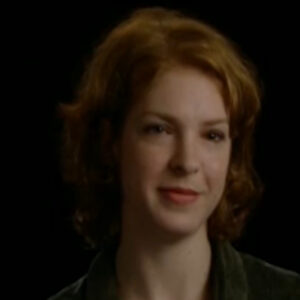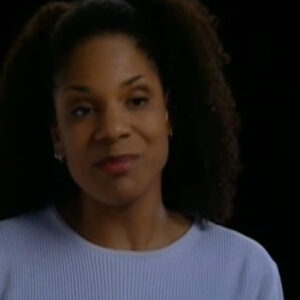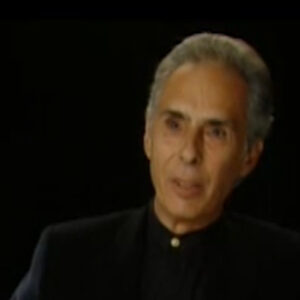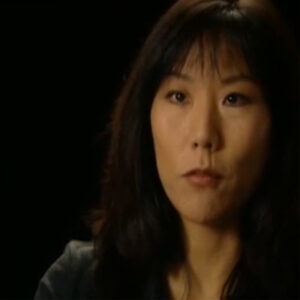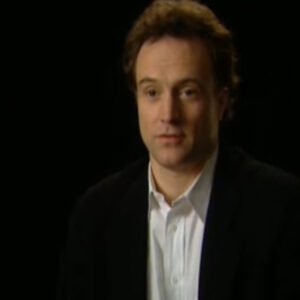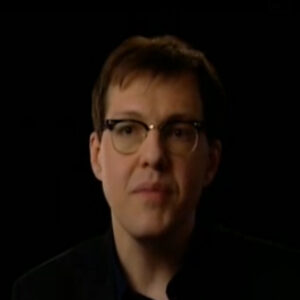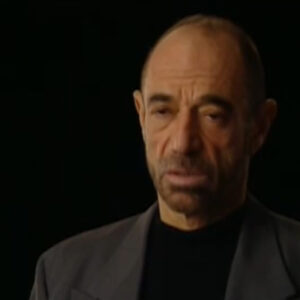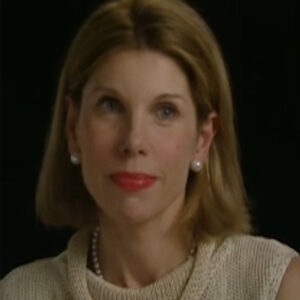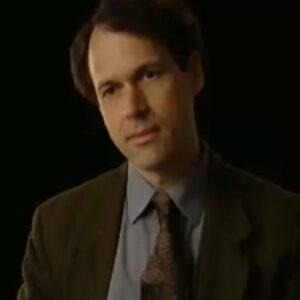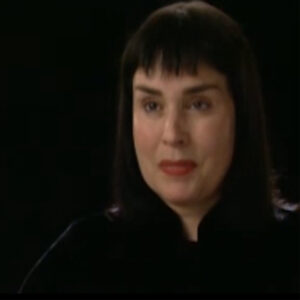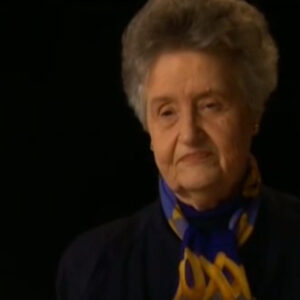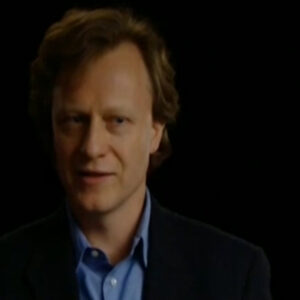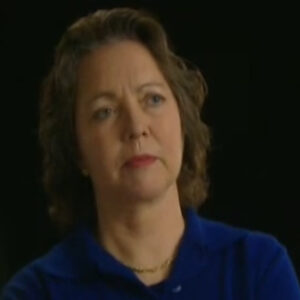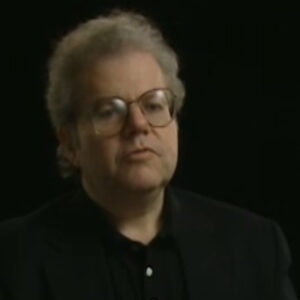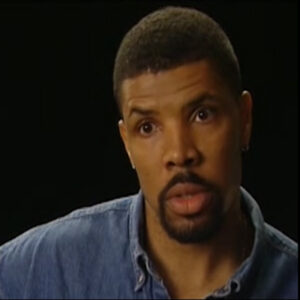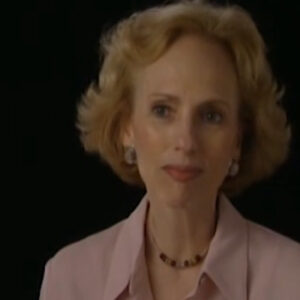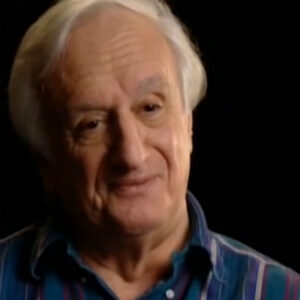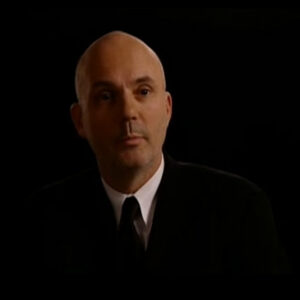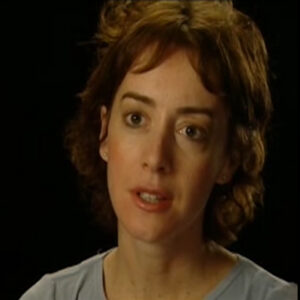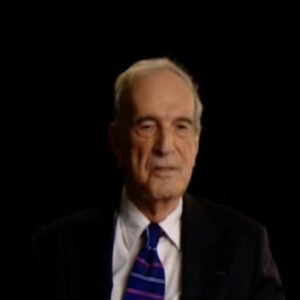Speaker Well, my mother was a kindergarten garden teacher and she had to be a pianist to be a teacher. New York City to teach kindergarten, you had to be able to play the piano because there was always these rhythmic exercises. They had to do with the kids. Now we do that and that that adult whatever, you know. Anyway, so she would play a lot at home. And I always liked hearing that.
Speaker And my father would bring home recordings of all kinds of jazz and and classical music that he loved. He was a classical player as well as a drummer with Broadway shows.
Speaker And they wanted me to take piano lessons. And they said I really wasn’t interested at them at the time, but I was really interested in the I Love Lucy TV show. And I. And they said, well, listen, if we’ll let you stay up to watch it, will you take piano lessons? I said, okay. So that’s sort of how it started. And then I went onto the oboe. So they’re what age you started?
Speaker That was the instrument that you went on. Right. What was your play when you were young? What were you doing? And when did it come to you? Oh, I’ll go into the conservatory.
Speaker I had played the drums and I my father taught me the drums, but it was very informal. I could play pretty good rock and roll drums, but I wasn’t a really good classical percussionist with mallets and timpani and so forth. And I thought, you know, drums, yikes. Everyone plays the drums and they’re a pain to lug around. In junior high school, I saw some I saw some beautiful girl play this thing called the old boy. I said, What? What the hell is that? And it was small. And I had this exotic sound and I said, OK, I want to do that.
Speaker So I started taking lessons and started to become pretty, pretty good at it and audition for the high school music and art, which at the time was at one hundred thirty Fifth Street and Convent Avenue across from CCNY. I think it was, yeah. And really got into all kinds of music and the experience at music and art. High school was just a fantastic experience in terms of opening up my my world to all this creative stuff that was out there musically and the art world. I mean, everything. It was it was amazing.
Speaker I was absolutely taken by avant garde music, very modern music and also very early music, because the best oboe literature was written in the Baroque Renaissance, medieval and early classical and the let’s say from, oh, Shostakovich, Schoenberg on up to me was the most interesting oboe musically stuff in the middle of the romantic period. I, I wasn’t that thrilled with that at the time. I’ve learned to appreciate Brahms and Schubert, Mendelssohn, etc., but I, I would listen to recordings of Stravinsky and then all the great composers of those periods I just mentioned, and I made it my business to go to the go to libraries and check out the scores. I actually bring them home, listen to the recordings and follow the score. And I would always think, how the hell did he do that? That’s unbelievable. That sound, that combination, that and there it was written down, you know, and I thought I’d love to do that and started and not ever taking any formal composing lessons, composition, but really having a love for four for these sounds. And I just sort of mimicked what I thought I heard and was a group of us where we a lot of different instrumentalists, we sometimes wrote pieces and we all got together at someone’s house and played them. We could experiment with all kinds of combinations of instruments and music. Plus I was doing freelance concerts all over New York and with orchestras, with chamber music groups and so forth and so on. And then it was time to go. Juilliard. And I was I was so confident about my abilities as an oboe player. You know, I thought, man, I’m gonna go to Juilliard and then I’m going to be the first oboist in the Cleveland Symphony or the Chicago or the New York or the Boston or Philadelphia or something like that. So I’ll never forget this. This was probably the single most humbling experience I’ve ever had where I went for my Juilliard audition at Juilliard. J u i l l i a d anyway.
Speaker And I was in the hallway with all the other 20 or 15 oboe players from all all over the world, mostly United States. But. And these people would come with their little briefcases and their oboe and they’d take them out and, you know, start what, warming up. And I walked in there thinking I was like, you know, hot.
Speaker Right.
Speaker And these people started to warm up. And I listened to them and I thought, my God, this space hopper. They were each one of them was phenomenal. No, da da da da da da da da, whatever. And I thought it just psyched me out. Me, if there was ever a psych out in my life, that was it. So I went for my audition and did pretty bad and got in sort of at the skin because I was just like, OK, play. Thanks, you know, out of there. So I think it was like fifteen or auditioning. And I was like, No. 13. I wasn’t quite the low end but was pretty close to it. And then my that was my introduction to it. Wow. Anyway. And it took off from there. I suppose it was good to start off on a on a lone coat and work your way up, but that’s how it started.
Speaker What did you know about it? Were you just in the music scene so heavily that you thought you just knew, oh, this is the place to go? Of course, it has this incredible history. Did you did you know about this or what was your mystique? What was your vision of what it what it was like? That’s right. I’ll just go to Juilliard. Right.
Speaker You know, well, my oboe teacher’s name was Melvin Kaplan, was a student there and a teacher there. And he was my first oboe teacher before I went to Juilliard. So he sort of, you know, prepped me for it, you know, and and sort of told me what to expect. And a lot of my lessons from him, I took at at the school, which was then at that fabulous old building at one hundred and twenty Fifth Street and Broadway. And there’s a little footnote. One year after I graduated batting, it went down to Lincoln Center. But I’m going there when I was in high school and just, you know, walking around those hallowed halls and getting this sense of history and even the smell of I mean, this place had been there for for so long.
Speaker And you see people walking and looking important and carrying instruments and briefcases. And, you know, I fantasize, oh, that’s one of the great pianists. Oh, and that must be the fabulous violinist from the Ukraine. And this must be the next prodigy.
Speaker So and so that was pretty impressive. And I thought, you know, to be part of this, I felt like I would fit right in. Well, I did, but not immediately, you know, and to be in classes with the likes of Pink, a Circle man and Itzhak Perlman, you know, sitting next to you and and they’re looking all over the place. We’re in an English class, you know, an English class at Juilliard, wasn’t it? It’s a, you know, a thrill for us. But it was required so we could get our B m degree, which I think is wonderful anyway. But seeing, you know, these awesome, you know, incredible talented people sitting next to me just goofing off and smoking in class and being reprimanded and told to get out until you can come back with a better attitude. Yes.
Speaker Tell us a little bit about, you know, when you finally you know, you were there in classes with these unbelievable people and what was happening to your own musical sensibility?
Speaker Well, I. I started to think, gee, maybe this isn’t for me. That is the oboe. Maybe I’m not. Going to be, you know, set the world on fire with my oboH plane. But I thought, well, I could be my second oboe and that maybe the Halifax Symphony or something like that, a little less lofty goals. But I was getting such a thrill out of being asked to play in these concerts of avant garde music and early music. Well, I mean, also help pay the rent. To some extent that I really didn’t think too much about the future. I just thought, I’m having a great time now and doing all this experimental music and early music and oh, this thing, you know, that’s just the sound of the combination of the live instruments was just a kind of a vibration that was so, so inspiring and thrilling. And I didn’t give much thought about where this was going to lead to. I was just so into it and into trying to understand how how these notes were put together and how they were conceived. And the minds behind, you know, the technique and and and the thought process of some of these composers was absolutely great. Also, being in orchestras, I didn’t like the the empirical sort of dogmatic personality of many of the conductors that I played for. And I thought she and that’s all that thrilled with feeling sort of like a second class citizen where we’re all really a group of fairly talented people. And here’s this in some cases, pompous fool, you know, telling us, too loud, too soft. Shut up. You’re you’re you’re coming in too late. It’s your phrases like, you know, and sort of, you know, nobody really like being talked down to not all conductors are like that or were like that. But I felt, you know, I’d rather have the tables turned a little bit. I’d rather be the person who either conducts and writes the music, you know, instead of being one of the cogs of the orchestra. At first, it’s it’s a thrill playing all the literature and going through, you know, all the Brahms, Tchaikovsky, Berlioz or God, you know, the whole orchestral, serious, major orchestral literature. But after a while, I felt like, you know, I was just a part of this thing for someone else’s benefit and that my individuality was not I didn’t feel comfortable with being in such a large group where my identity seemed to be eaten up to some degree.
Speaker Did you feel that around you in these incredible students that when you came, did you feel that a lot of people came in with this sort of love music or this one is to be somebody of the people all the time? You get to play for so long, you’re pretty proficient. You’re getting to that point.
Speaker You know, not everybody is listening. You are right.
Speaker Of course, even now, today, that in your time, that was quick to sort of say, OK, I came here with a love music. Oh, my. You know, how am I going to make this this way? Look to my left and to my right. Right. I mean, did you struggle like did you see other people struggle with this kind of stuff?
Speaker Like you clearly see, how am I going to make my way? How am I going to fit into this incredible kind of history or options?
Speaker Yeah, I, I think, you know, we as students, we all did what we were told to do in a sense, show up at class, practice, play in a certain orchestra, do your chamber music, take your theory classes. So we all did that. And as time went on, I think we you know, we would start to take stock of of what all this was and what direction we really wanted to go in. You know, Juilliard did not have, like, you know, counselling sessions, which I thought would have been a cool idea where you have some mentor and you know, and when you have a private meeting with someone and they say, well, how’s it going? You know, what do you feel about the school and what do you feel about your future? And, you know, his music. You think music is going to be something you’re going. You know, I do professionally or what? You know, nobody cared about that then or thought about it. You know, and when you got your diploma degree, it was like, OK, you here it is. Take off. Oh, good. So you had to I think anyone who is who has been successful in the music profession, whatever it is, commercial music or or classical music, has had to, you know, make his or her own way and find that that sort of that thing that inspired us to figure it out because no one was going to help us, you know. You know, in a funny way, we were gonna be taught. Oh, that’s too bad. That’s out of tune. You’re playing too slow. It’s too loud. Is too fast, you know. I didn’t mean that, but I mean, career direction, life direction, you know. But for me, Juilliard in the 60s, New York in the 60s was phenomenal. I mean, it was it was the most exciting time of my life. And in terms of music. I mean, composers were or were coming into town from all over the world. There was a great transition of traditional things to more experimental avant garde things. It was it was just so, so thrilling. As I said before, I wasn’t too concerned about the future. I said, I just want to do all this stuff and see what happens. And then one big thing happened, which was this was the time of the draft. Do you think Juilliard draft? I mean, that doesn’t make any sense. We’re supposed to be you know, we’re artists. We’re exempt from all this stuff. Well, you tilt wrong. That wasn’t the case. And I turned out to be in the lower third of my class academically, which meant I was eligible. And I was informed by someone from the school with a letter. Dear Mr. So and so you you have to report to the draft board and so on. So they and I and I was stunned. I said, this can’t be I’m I’m a musician. They don’t want me. I mean, you know, I’m I don’t have aggressive, hostile bone in my body. I’m not up anyway. I can tell you how I got out of it, but I got out of it. It’s a great story. And that was also very important because that made me think, hey, there is a future. It’s not just fun and games here. I got to I’ve got to focus what what it is that I really want to do during the last two years. I put a rock and roll, rock and roll band together for a Halloween dance that turned out to be this group called the New York Rock and Roll Ensemble, where we played classical music and rock and roll. Side by side, not like, say, a group like Procol Harum who combined them did sort of Bach style music, but with, you know, rock and roll rhythms and instruments. And we were sort of the darling of the New York society set where we played parties for rich people because we would we’d wear tails and play our oboes and and do all this baroque music and then go into loud rock and roll stuff. So and and we played a we played at a club in New York called Wheels on the Upper East Side for a year and going to Juilliard at the same time. So it was kind of it was a time where I seemed to be going in more of a commercial direction.
Speaker The building, I mean, if you can, you’re up in Columbia. You know, you’re right. It’s been going on. And yet it seems almost like the airy shadows of shouts of light coming into the home. I mean, if you can kind of a little bit of what that was sort of the dichotomy in the school, out of the school like you did in what was going on. And how did you find sort of faculty administration responding to or did they just not care about that stuff? Right.
Speaker No, no, no. Again, this. You know, you would always have like in any school. The teachers who were, you know, really with it and really had a sense of things that were going on beyond Juilliard and beyond music, you know. And some teachers who were just very traditional and just practice your scales and that’s it. And and that’s and time’s up. OK, I’m leaving. You know, like that. But. There were kids there. I mean, there were students who would lock themselves in these practice rooms for hours, sometimes eight hours a day, just working themselves like crazy. And I just I couldn’t see that. I mean, it’s important to practice, certainly. But like, some of these people were just so driven and so into it. And these practice rooms at the old building were really like like padded cells. The only thing that was missing was the pads. They were rooms the size of this room. I’m sitting here now. And they had double doors and each room had a piano, a Steinway. And when you close the door, you were in an airtight environment with no windows and no other stimuli. And the idea was, you know, shut up and practice, whether it was the piano or your instrument. And it was kind of it was sort of like maraz side, you know, like like a, you know, sort of a mental institution. And in a certain way, then you open one door and then the other door. And it was like this transition into, you know, the real world again. So a lot of people really opted to stay in these rooms for four hours. And some of us did what, you know, what we thought was appropriate and then, yay, freedom. Let’s let’s go out. But like you said, Columbia and and Barnard College and the Upper West Side of Manhattan.
Speaker Oh, it was just you know, there are concerts at Barnard. There were concerts at Columbia. There was just it was just great.
Speaker And what was what was that musical level of experimentation inside Juilliard? Kind of you? A regular concerts, recitals, things you played and you saw that were really revolutionary or new? Or did you feel that it was still it was a history in its history?
Speaker It was. It was like, let’s say, 80 percent being stuck in its history and maybe 20 percent not because there were the composition students. And composition is a really sort of tricky thing to teach. I mean, there’s certain technical things you can learn. But other than that, you know, who’s to say whether this piece is good or bad? I mean, if it moves you, if it touches you, if it does something to you, well, OK, it’s successful. But, you know, a teacher can’t say, well, you know, you’re getting a F because I don’t like the piece. You know, that doesn’t make sense. It’s about, you know, effort and being a good student, I suppose, in a school. But anyway, the composition students, a lot of them, including myself, would experiment with new sounds and new ways of expressing their musical ideas. And we’d put groups together or they would the school would allow us to put groups together just to play these pieces and have concerts. And that was always you felt like, oh, there was some freedom in that. That was that was wonderful. But the big orchestra that I think there were three orchestras there was like the great Juilliard Orchestra, the with the best instrumentalists. There was a second and the third orchestra. And I do remember I think I was in the orchestra, but the orchestral repertoire, there was nothing, you know, no John Cage or Stockhausen or anything that was really out there in those days. It was really the standard repertoire. You had to go elsewhere to get involved with sort of the the real new stuff at at the time. But the composers were able to have this group that played their stuff.
Speaker What was your relationship like with your own with your own teachers? You talked about, in a funny way to go talk to you about your career. But in a way, there this incredible history of this of this mentoring relationship, people going to Juilliard to study.
Speaker Yes, exactly.
Speaker A little bit about what, you know, got to be and yet what it was for you.
Speaker Right. I, I think I probably misled you earlier because my oboe teacher had a profound influence on on me in other ways. Just then learning the instrument. He was a. Fashionable and he played in a touring chamber group. So I sort of thought that I could get into that group and fashion myself after him in a in a certain way. So. And he was the first person in my life really to sort of tell me good from bad in terms of my own plane and abilities. My parents were just anything. I was an only child and anything I did was, oh, you’re a genius. Oh, he’s brilliant. Blah, blah, blah. So I thought, oh, OK, well, I am the greatest. But when I got to Juilliard, I quickly learned I was far from the greatest. And this teacher would say that was bad. That was good. And I really started to get a sense of proportion and and what was what was good or bad? Plain and. And I learned more from him than just playing the oboe to. You know, the ways of the world, of the music business and and how I could think of, you know, making a living, doing it. So that’s that’s part of it. But you hear the stories of the great piano teachers and the violin teachers.
Speaker And when the great prodigies showed up and they would come from all over the world, that relationship was always so, so incredibly close, intimate and and fraught with all kinds of dynamics of, you know, love, hate and things like that. And they were classic. I forget. I’m sorry. I wish I could remember the great violin teachers matched up with the great students, but I’m sure you.
Speaker Yeah. I mean, at the time you don’t belong. Right. Right. Exactly right. Yeah.
Speaker Oh really. Other music students and even to the other divisions. To the dancers.
Speaker I mean, I just in your time it really was the dance division. Yes. Very talented. You were 68.
Speaker Yes. I was going to say. I was going to say you didn’t even cross over with the people. No. Right. But what was the what was the relationship like? You know, that means finally, you’re here musically inclined enough to end up at Juilliard. It must’ve been really great to get there, sort of like minds and interests.
Speaker Well, the thing that was really amazing is these kids would show up from all over the world, have all kinds of personalities, you know, naive, sophisticated, quiet, aggressive, happy, friendly, depressed, everything. And it didn’t seem to matter. Their talent would what was visited upon them, whether they wanted it or or or not. And that’s that’s one thing. The other thing is that the oboe players, the flutes, the brass players all had what seemed to have a sort of personality that was that was similar. The brass players seemed to be, you know, sort of like as a group blue collar guys who would, you know, go out and get drunk and raise hell. The string players were sort of anally nasty, neat. The woodwind players were sort of neurotic. Who could go sort of. So we you know, our clicks were sometimes dictated by hour, by hour, by our instrument, the woodwind group, the brass group, the the string group, when we all had our own sort of clicky similar personalities, no matter where we came from, you know, from Kansas or who knows where, you know, you end up socializing.
Speaker You told me some funny things that you told her about about some of these sort of great players. And she did. And she was saying that you had funny attitudes about them as well.
Speaker The pool player. Oh, I mean, pinkest circumlunar was just one level above, you know, like a mafia hit man. I mean, he israely he was, you know, loud mouthed, sometimes foul mouthed, cut classes, smoked like crazy. Would hang out at the pool halls. So much of his spare time. Itzhak Perlman, on the other hand, as far as I remember, all the women just were nuts for him. And, you know, at the time, I I’m not sure if he was born with with polio or contracted it. Well, anyway, when I first saw him, he was on these crutches. I think they’re called Canadian crutches, the half crutches. And he had women carrying his violins and his books and they were just adoring him. And he was just a sweetheart. He was smiling and friendly and absolutely down to earth. Misha Decter seemed like he just wasn’t there. You know, he just wanted to play the bloody piano. And the rest of the stuff was he was friendly, but he didn’t mean he didn’t speak to many people. He he would just show up through his classes and and take off and. And I remember some people I, I didn’t that that weren’t all that impressive as players went on to become big shot soloists. But generally, the idea of taking academic classes, there was kind of a joke. No one really took them seriously because we all thought we’re here for, you know, the music and that’s it. And the other stuff was sort of like, you know what? When are we going to get out of here? Over a little bit of time. But there was one instance where I where I thought, oh, brother, this is the end of it. There’s a phenomenal piece of music written by Ravel called A la Tambov de Cooper.
Speaker And it has a wicked oboe solo in it. I mean, just all over the place. And it’s I mean, any oboe player will tell you you’ve got to be pretty hot to get this get through this thing anyway.
Speaker My orchestra, my wonderful well, the third orchestra, whatever it was we were we played this piece and I was the first oboe player in the orchestra at that time. And I remember the conductor was a man named Cor Hey Maistre. And I think my columns of George Maestro Master now are. Or maybe you see they’re Spanish or he was Spanish and I think now he conducts the Pasadena Symphony. I’m not sure, but he was, I thought extremely talented conductor, but he was also mean. And if he didn’t like you, he would single you out and he would he would ridicule you. You know, when as a young person you’re in an orchestra setting, you know, it’s unusual for someone to, you know, to stand up and say, hey, you know what? Go shove it. Mr. Conductor, I’m out of here. You know, you can take your baton. And you know what? With it, you know, no, we we didn’t do that, you know? But when it was over, we’d say, OK, now what are we going to how are we going to kill him? OK, good. You get that and I’ll do it. I’ll knock him out and we’ll throw him in the river. Okay, good. But anyway, I practiced the hell out of this piece and it came down time for the concert and it went on and I just. I missed a lot of it. It didn’t work out. It was a blur of notes. I was like, da da da da da da da da da da da da da da da.
Speaker That kind of thing, you know? And I didn’t hit it. And he he.
Speaker Traditionally, when the pieces over the conductor, you know, turns around, takes a bow and then signals for the oboe player or this or the the soloist who has this great solo in the piece to stand up and take a separate band from the orchestra, you know. So he did that begrudgingly and looked at me like, all right, stand up. And I knew this was not for me, you know, not in the long run. And I went home and I want to tell, you know, just just jump under the covers and take the elbow and chuck it. So thanks a lot, George M.. Wherever you are and I see you, you’re dead meat. Son of a gun. Never mind.
Speaker So how did you how did you end up working with that? You mean changing, moving, deciding where you go going?
Speaker Well, the being in this band, we had the opportunity of going into a recording studio and this was like, whoa, this was going into some some fabulous utopian place, you know, to play an instrument recorded and then hear it back with all these fabulous reverbs and echoes and combinations of things. And it’s like, wow, this sounds incredible.
Speaker So, you know, doing that and getting into pop music in the recording studio was really a thrill. And we we recorded five albums, went on tour of all the colleges in America. And then after a while, the thing got kind of stale and that was the end of that. And I got a I did some record producing in New York that wasn’t too successful, came out to California. My wife’s encouragement. She she had her family was was actors and actresses in the business are her sisters, Tyne Daly, and her brother is Tim Daly, who is now coming as he’s doing a new fugitive series for CBS. Hi there. And so what’s the point? The point was I was kind of reluctant to go, but she said, no, come on, you can do this.
Speaker And I knew by then that I wanted to write film, music and TV music, especially after I heard a score of Jerry Goldsmith’s four movie called The Planet of the Apes, which used a very avant garde, aleatoric style of of of of music. And I thought, boy, if they let you do that out there, I’m there. I want to get involved with it, because mostly before that, it was sort of like these middle of the road, sort of Vegas lounge band. Which was not very exciting at all, but.
Speaker So where was I?
Speaker I’m making a good point here. It’s. Yes, fairly well.
Speaker Well, you realize there were these other possibilities and it would have made, you know. Right. You know, if I can make my way musically in another way. I’ll just check this. Check this. Life is a play. Right.
Speaker So I had as a record producer, I was able to get groups of instrumentalists together and play some of my music and put it on a tape and have my first sort of demo reel. So going to California, I was able to, you know, take this around and be introduced to directors and heads of the music studios and so forth and so on. And eventually it paid off because my brother in law was an actor as well, and in a series called The Rookies for Aaron Spelling.
Speaker And he was able to get me to do some of the music. Then it started taking off after that. But I remember that.
Speaker Well, my real name is not Mark Snow. It is Martin Fulton. And people say, well, you know, you’re just some Hollywood jerk, you know? Changes his name like a movie star. I mean, who are they? Who do you think you are? What’s all that about? Well, in New York, I had a contract with this record company and I skipped out on it and I got threatening phone calls saying, you know, for the next year, you still have a contract with us. You can’t do any work. And if you do, you owe so much commission. So, yikes. So I went to a a music lawyer and I said, here’s my predicament. What do I do? I said, well, change your name, you know, for this one job, and then the contract will run out and then you can go back to your real name.
Speaker So I changed my name. And in those days, the the credits for the composer were we’re always at the end. Kraul and they always went by like this. So if you had a name like Patricia of Unbranded Steam, the third or something, you would know. Who was that? You know? But Mark so was pretty, you know, visible anyway. Changed my name. Did this job. It was really successful. And I thought, oh, wait a minute. California, more snow. Maybe I am this guy. Let’s go for it. So end of story.
Speaker You hark back to a lot in the work that you do now. You see those those mere moments where you’re doing something quite different than that core, what you were getting from someplace actually with everyday composition. And how is it?
Speaker That’s a that’s a great question. And it’s a very important connection because the kinds of music that I was so immersed in and really loved at the time I was at Juilliard, you know, it has not left me whatsoever. And doing this series of the X Files, I’ve been able to draw from so much of that early experience and my involvement with with, you know, new music, experimental music and electronic music, because the music I do for the X Files is all electronics samples. And there are no live players involved for two reasons that this the sounds are so unique it’s impossible to get live people to do that in a short amount of time without a lot of, you know, experimenting.
Speaker And just, again, that the timeframe of having to do these things in a you know, on a weekly basis and the sophistication of this, you know, all these digital electronic sampling sound devices are so sophisticated now that, you know, we could only almost do like a big Berlioz symphony. And a lot of people would be fooled.
Speaker You know, when you look at the history of people that are, you know, composer John Conti, you know yourself. I think we’re trying to develop you know, you all have really rich history as musicians, as artists on a single instrument, as you know. I mean, I’m wondering about this kind of this sort of legacy. I mean, do you think in a way that you have to have that kind of back kind of a technique or maybe it’s a dedication or maybe it’s just the knowledge? I mean, what do you feel that the Juilliard was really, like, rich? Like a really full circle of. You know, sort of experience musically. The knowledge that came from that time is required to go. I mean, it’s just it’s just a lifetime process that has to go through.
Speaker Well, I think nobody goes to Juilliard without, you know, a blasé attitude about music. I mean, everyone there was that I can remember, I was just thrilled and wanting to do something in music and end to it and to keep exploring and pursuing music no matter what style it was or part of the business. But still, I’ll bet anything that any one of us, you know, and I don’t put myself in the category of John Williams or Pincus. Zuckerman and Perlman and so forth. But if there was no Juilliard or Curtis Institute or Manhattan School of Music or whatever, all of these people would still be successful. You know, I think Juilliard and the music schools were very instrumental about focusing one’s talent and putting discipline on it. But we all had a burning desire to do something and it was going to happen whether we went to Juilliard or not.
Speaker You mentioned earlier there were so many people there that were just incredibly talented, but didn’t you know?
Speaker Yeah. Also the flipside of that, there’s so many people mediocre in the business or coming out into the world. There’s sort of that interplay of talent. Ambition. Right. I mean, you had I mean, obviously, you’ve had thought came up with a very brief conversation.
Speaker So I think, you know, there is that magic word. I think it’s used in the acting profession, in the dance, you know, the professional dancers or anything in the art of painting, sculpture. You know, that it that word it.
Speaker And some people have it. And some people don’t. And some people could be not all that talented. But they have this intangible thing, you know, called it, that propels them out in the world and they make their mark. And I’ve seen people who I thought were pretty talent, was pretty limited, but they had this other quality. This it there’s this thing that drove them to to to make it one way or another. You know, people would look at someone and say, I don’t know what. Well, at Juilliard, we, you know, we take bets. Or do you think this guy is going to be successful at this or this person is going to go on to be that? And a lot of times we’d say, you know, this individual has got some magic quality. I’m not sure where he’s going to wind up, but he’s definitely going to make it.
Speaker Nine and half times out of ten, it will always seem to pan out that that that quality, that that magic it thing.
Speaker What about the years?
Speaker And just talk a little bit about that collaboration competition.
Speaker And how did you how did you hook up to.
Speaker Well, we met at Music and Art High School.
Speaker I actually have to say it used to be my question. Oh, yeah.
Speaker I met Michael Kaiman at Music and Art High School, where we were roommates in the last year of high school and then became roommates again when we were both at Juilliard. And we both played the oboe and went on to be in this group together, the New York Rock and Roll Ensemble. He hated the idea of of anything to do with pop music. And he was he was very serious. And he came from a family that was incredibly successful. His brothers were doctors. His father was was a dentist, but very active politically and a very, very nice. Whatever.
Speaker Anyway, let me talk a little bit about that. Talk about that collaboration with other students. I mean, that must have been pretty strong. I mean, did you guys sort of get a good gig and think, hey, we can roll with this? Or was there something about, you know, this sort of collaboration and having a group?
Speaker Yeah, well, I. I kind of forced him into doing it. He he he didn’t he really wasn’t up for it. But then when he got into it, he thought, oh, wait a minute, this is the real deal here. This is what I’m really into it and into. And he really took off and grew and, you know, the the group was together from for many years, but he really wanted to be out in front of the band and, you know, do his own thing. And he wanted to be a solo entity. He wasn’t too comfortable about being a part of a group. He wanted to be the main deal. And it was sort of one of the reasons the group sort of disbanded. Were you sort of one by one? Everyone sort of fell off. One guy quit. Another guy was fired. And then we thought, oh, well, the hell with this. And Michael went off and sort of kept the name of the group and try to keep that going. And that didn’t work out for him. And he went to London. Met the mark, the Monty Python guys and got in with them and his whole career started there and it really took off. And I was in California, so, you know, we were very close, you know, initially, and then it sort of drifted apart. I mean, his and he was, you know, so ambitious. And I was, too. But not in not in that sort of ferocious way.
Speaker Perhaps just ferocious. Ambitious. How did you.
Speaker Did you feel that when you were at the school that, you know, with it, with the sharks?
Speaker Well, yes and no, because it was it wasn’t it wasn’t like if somebody played better than you, you know, they were out personally to you know, not nobody was out personally to do someone else in. It was just about their own ambitions, you know, and being so headstrong about that, they were going to get ahead no matter what. Sometimes, you know, there were hurt feelings. Other times there were well wishes. And, you know. But you did see me like like or Zuckermann. You just knew this guy was gonna be absolutely spectacular. I mean, his personality. You could tell with people how they how they were that they had this this thing again, this it quality of being. So it was going to happen for them, you know. And there was nothing anyone could do to stop it.
Speaker Did you feel that for yourself to make my way? Did you feel that you were you will.
Speaker I did. But I didn’t know where it was going to wind up at all. I knew I was. I had thoughts of being a stand up comic like Victor Borg type thing where I would play the oboe and tell jokes literally and combine that I had a drum set and a power, an oboe onstage and and do that and tell a joke or some kind of performance art, you know. I knew I was going to do something, but I didn’t know exactly what it was. And I and I started thinking about composing music for films and TV. I thought, boy, that was you know, for one moment you can do a love theme. The next thing you can do a big chase and have a big orchestra and then all percussion and then all brass and a combination of this. It seemed like it just wasn’t just one thing that you were able to express yourself in many different styles of music and many different combinations of of instruments, including electronic instruments mixed in with acoustic instruments, which is also a big part of my Juilliard background of playing pieces where that combined electronic music and live instruments.
Speaker Is there anything that you think particularly is very important about the experience that I haven’t brought up?
Speaker I think the the tradition.
Speaker I mean, you always were aware that you were part of a of this gigantic bigger than life tradition at the at the Juilliard School that you were sort of bathed in kind of a, oh, a rarefied light that you felt sort of special.
Speaker And that going into the outside world, you know, you would inevitably would inevitably be challenging and difficult. But having this experience. Well, personally, anyway, made me feel like I’d been through some incredible experience, cathartic experience or or learning experience or something that gave me an edge that made me feel a little bit more ready for my world, you know.
Speaker And do you think that when people have gone through your they’ve seen what you’re up to? What’s the response to. You know, you’re looking like you know me.
Speaker Oh, father, right? You heard it. Yeah. Like the top thing, it’s like it’s still there. Yeah. Like you. Professionally. What has been the attitude?
Speaker Well, it’s like. Oh, wow. He’s a Juilliard student. That’s that’s fantastic. OK, that’s over here. Now let’s hear the music. Oh, the music’s good too. OK. Wonderful. I mean, but, you know, knowing that you’re a Juilliard student gives you a sense of legitimacy and maybe, you know, a little edge over someone else who isn’t.
Speaker And I’m sorry, just lost it for a moment because, I mean, I think I want to go back to one other thing that I think we’re done. OK.
Speaker There was a sort of a sense I that we were really talking about my hands because I’ve seen a lot of photographs of the Clairemont building. And, you know, just as even just the your the lunchroom, the elevator, the clothes. I mean, how are people dressing at that time? What were they wearing? Looking. What were you know? Well, I was a little secretary. Well, it world. What were the. They’re black women. I mean, Juilliard was taking, you know, women from the dawn of time. Right. You know what? What did it feel like when you opened the doors?
Speaker Well, it felt like a like sort of a old black and white wonderful movie. You know it. There were such character to it, you know, like a like a restaurant that’s, you know, from the thirties or something. Or, you know, you’re all from New York, right. I mean, maybe like Gage and Tollner is restaurant in Brooklyn there, you know, gas lit. And now the woman in the in the coat room, you know, where you’d hand her, you your your coach had a, you know, a matron outfit on. The people who worked around the school had different uniforms. There was. They were in an elevator person with white gloves. It was really quite, you know, fabulous from from another time. And that aura is something that I don’t think I haven’t spent much time in the new building, but I don’t think it has that I was very lucky to have all my time at the old place, I think.
Speaker Well, I mean, I don’t think there’s a school in any old building where the elevator.
Speaker Well, how about that lunch?
Speaker What about lunch? What about meals? About I’ve seen unbelievable photographs and sort of Duke Ellington’s granddaughter. Right. Well, we have been pulling all the old photographs that no one’s ever seen. Hopefully.
Speaker Well, I think, you know, the the fascinating thing about that is you’d have all these people who have become so famous and so well known. But at the time, you know, it wasn’t clear where they’d wind up and who have these pictures. And, you know, I can see it now. And in my mind’s eye, you know, pictures of all these people sitting around, just kids and there’s no pictures. I come in here and so and so here and the, you know, the greatest clarinetist and the songs are Symphony and and Diener Giles, who is the first flutist in the Los Angeles Orchestra. And, you know, and everyone’s sitting around and the dancers and and who knew, you know, all these people would be like, you know, superstars and in their own right. I mean, whether it was pop music or serious music or dancer or whatever.
Speaker But did you have a sense of the dancers giggling up the elevator to the sixth floor? The dancers? Well, the musicians and the actors. Dancers, they’re really funny. All right.
Speaker Well, I.
Speaker I was in love with a couple of dancers that the fun part is they the women wore, you know, their outfits, their tights and leotards all the time. So, you know, that was always different than the rest of us with our jackets and ties. And so that was that was interesting. And but they as a group, they weren’t all that smart, but very, very attractive and interesting. And now I’m gonna get killed by all the dancers of the world. Sorry. Anyway. Now you’re looking at her and she’s a dancer, right? Oh, boy. All right.
Speaker I like it here because we we always I always say that everybody always looks at me like I failed dancers. They can’t string sentence together. Don’t worry.
Speaker OK. They go and they smoke, too. That was the thing that knocked me out. All the dancers smoked like crazy. Didn’t eat. There was. There was. Their diet was basically water, bread. Cigarettes could still jump all over the place. And who knows why.
Speaker Anyway, he was out for you.
Speaker Well, it was it. Exactly. I’m I’m very lucky because I never really got started with it ever.
Speaker So I didn’t have a hard time quitting. So I never just started kids.
Speaker All right. All right. Good. Wonderful. You know, I had no idea that there were many of the LAPD were wearing. What?
Speaker Oh, they had you just you know, it was built like, well, that was just one step below that. I mean, you know, the old New York, you know, apartments on Park Avenue, Fifth Avenue, those doormen with the full length coats would stand outside in the captain’s hat and, you know, and gloves and so forth. It was it was a variation of that, you know, so you walked in there thinking, wow, where what is. Where am I going? This is great sort of way. Yeah. Okay, great.
Speaker So, so wonderful. I would just like to be an artist.
Speaker So, you know, it’s just the horn players that I that I knew the French horn players were such alcoholics and lunatics and some of these guys were were so gifted, were so brilliant and have this cut, this contrast, this polarized irony. You know, these were artists. These were great artists, you know, I mean, it’s not only it’s not fair to say only the French horn players. But my experience there, these guys were whacked out. I mean, they were really out of it.

